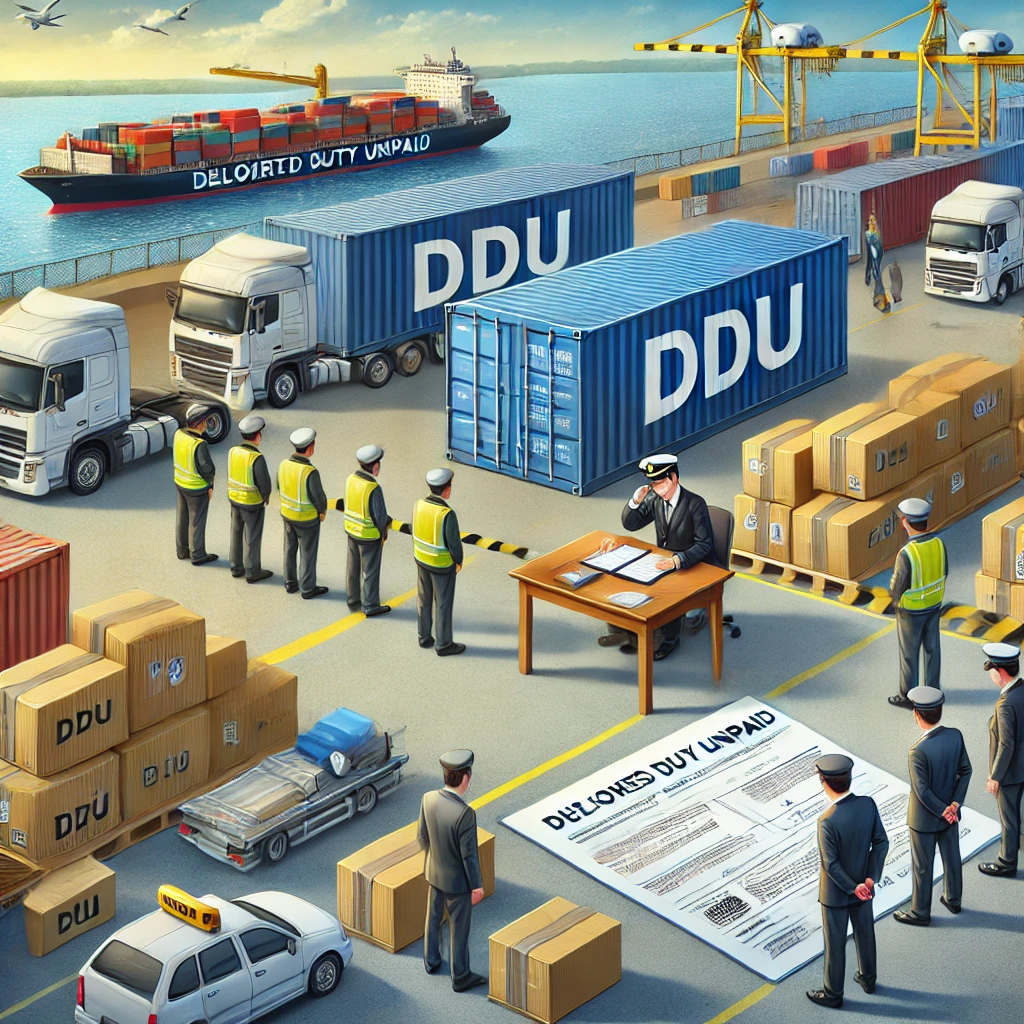The Role of DDU in Modern Practices
DDU, or Delivered Duty Unpaid, is an international trade term that was widely used before being replaced by DAP (Delivered at Place) in the 2010 Incoterms update. However, many businesses and professionals still reference in trade agreements. Understanding its role, responsibilities, and practical applications can help businesses navigate global trade more effectively. This article explores the key features of DDU, its practical uses, and its continued relevance in modern logistics.

What is DDU?
DDU (Delivered Duty Unpaid) is an Incoterm that defines the responsibilities of buyers and sellers in international trade. Under a DDU agreement, the seller is responsible for delivering the goods to a designated location in the buyer’s country, but the buyer assumes responsibility for import duties, taxes, and customs clearance.
Key Features of DDU
- Seller’s Responsibilities:
- Ensuring goods are properly packaged and labeled.
- Arranging transportation from the seller’s location to the final destination.
- Covering export costs and shipping fees.
- Providing necessary export documentation.
- Buyer’s Responsibilities:
- Handling import customs clearance.
- Paying applicable duties, taxes, and tariffs upon arrival.
- Completing any additional legal requirements needed in the destination country.
- Managing the final distribution of the goods.
- Risk Transfer:
- The risk is transferred to the buyer once the goods arrive at the agreed-upon location but before customs clearance is completed.

Practical Uses of DDU
- Cost Control for Sellers:
- Sellers prefer DDU when they want to limit their involvement in import duties and customs formalities.
- Buyer Flexibility:
- Buyers benefit from by choosing their own customs brokers and managing import costs directly.
- Used in Specific Trade Agreements:
- Some businesses still incorporate in contracts when both parties prefer its structure over newer Incoterms.
.
Differences Between DDU and DAP
- Customs Responsibility:
- DDU: Buyer handles customs clearance and duties.
- DAP: Seller ensures delivery up to the buyer’s location but may assist in customs clearance.
- Updated Terminology:
- DDU is now considered outdated and has been replaced by DAP in official Incoterms.

Importance of DDU in Global Trade
- Reduces Seller Liabilities:
- Sellers using DDU do not have to deal with varying customs duties in different countries.
- Allows Buyers to Manage Import Costs:
- Buyers can negotiate better import terms based on their knowledge of local regulations.
- Flexibility in Supply Chain Management:
- Companies using can maintain better control over how and when their goods clear customs.
Challenges with DDU
- Uncertainty in Import Duties:
- Buyers may face unexpected import costs, leading to potential disputes.
- Customs Delays:
- If buyers are unfamiliar with customs procedures, delays can occur.
- Limited Seller Support:
- Unlike DAP, where the seller may assist with customs, places all import responsibilities on the buyer.

Best Practices for Using DDU
- Clear Agreement on Responsibilities:
- Ensure both parties understand who is responsible for each step of the process.
- Research Local Import Regulations:
- Buyers should be aware of any potential import restrictions and costs.
- Work with Trusted Logistics Providers:
- Using experienced freight forwarders and customs brokers can prevent issues.
Conclusion
Although DDU has been officially replaced by DAP, it remains a relevant concept in many trade agreements. Understanding the role of DDU, its benefits, and potential challenges can help businesses make informed decisions in global trade. By clearly defining responsibilities and planning accordingly, buyers and sellers can use effectively to streamline their international shipping processes.
